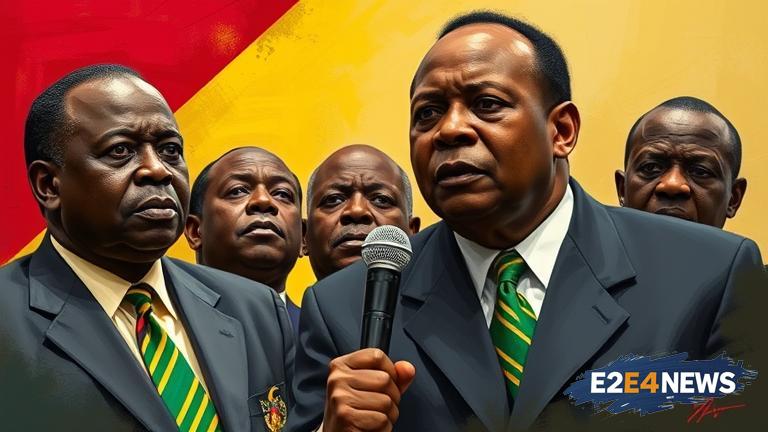In a shocking turn of events, affiliates of the ruling ZANU-PF party in Zimbabwe have called for President Emmerson Mnangagwa to be declared life president, a move that has been met with widespread criticism from opposition parties and civil society organizations. The call was made at a recent meeting of the party’s youth league, where members argued that Mnangagwa’s leadership had brought stability and prosperity to the country. However, opponents of the move argue that it is a clear attempt to undermine the country’s democratic processes and consolidate power in the hands of the ruling party. The call for a life presidency has also been criticized by human rights groups, who argue that it would be a clear violation of the country’s constitution and would undermine the rule of law. Despite the criticism, ZANU-PF officials have defended the call, arguing that it is a reflection of the party’s confidence in Mnangagwa’s leadership. The move has also been seen as an attempt to prevent potential challengers to Mnangagwa’s rule, including former vice president Constantino Chiwenga, who has been rumored to be planning a challenge to the president’s leadership. The call for a life presidency has also raised concerns about the country’s democratic future, with many fearing that it could lead to a return to the authoritarianism of the past. The opposition Movement for Democratic Change (MDC) has condemned the call, arguing that it is a clear attempt to undermine the country’s democratic processes. The MDC has also called for the government to respect the country’s constitution and to allow for free and fair elections. Civil society organizations have also weighed in on the issue, arguing that the call for a life presidency is a clear attempt to undermine the rule of law and to consolidate power in the hands of the ruling party. The Zimbabwe Human Rights Commission has also expressed concern about the call, arguing that it would be a clear violation of the country’s constitution and would undermine the human rights of citizens. The call for a life presidency has also been criticized by the international community, with many countries expressing concern about the potential implications for the country’s democratic future. The European Union has called on the government to respect the country’s constitution and to allow for free and fair elections. The United States has also expressed concern about the call, arguing that it would be a clear attempt to undermine the country’s democratic processes. Despite the criticism, Mnangagwa has remained silent on the issue, fueling speculation about his intentions. The call for a life presidency has also raised concerns about the country’s economy, with many fearing that it could lead to a decline in investor confidence and a worsening of the country’s economic crisis. The country is currently facing a severe economic crisis, with high levels of inflation and unemployment. The call for a life presidency has also been seen as a distraction from the country’s economic problems, with many arguing that the government should be focusing on addressing the country’s economic challenges rather than attempting to consolidate power. The government has argued that the call for a life presidency is a reflection of the party’s confidence in Mnangagwa’s leadership and his ability to address the country’s economic challenges. However, opponents of the move argue that it is a clear attempt to undermine the country’s democratic processes and to prevent potential challengers to Mnangagwa’s rule. The call for a life presidency has also raised concerns about the country’s political future, with many fearing that it could lead to a return to the authoritarianism of the past. The country has a long history of authoritarian rule, with former president Robert Mugabe ruling the country for over three decades. The call for a life presidency has also been seen as an attempt to prevent the country from transitioning to a more democratic system of government. Despite the criticism, ZANU-PF officials have defended the call, arguing that it is a reflection of the party’s confidence in Mnangagwa’s leadership. The move has also been seen as an attempt to consolidate power in the hands of the ruling party and to prevent potential challengers to Mnangagwa’s rule.
